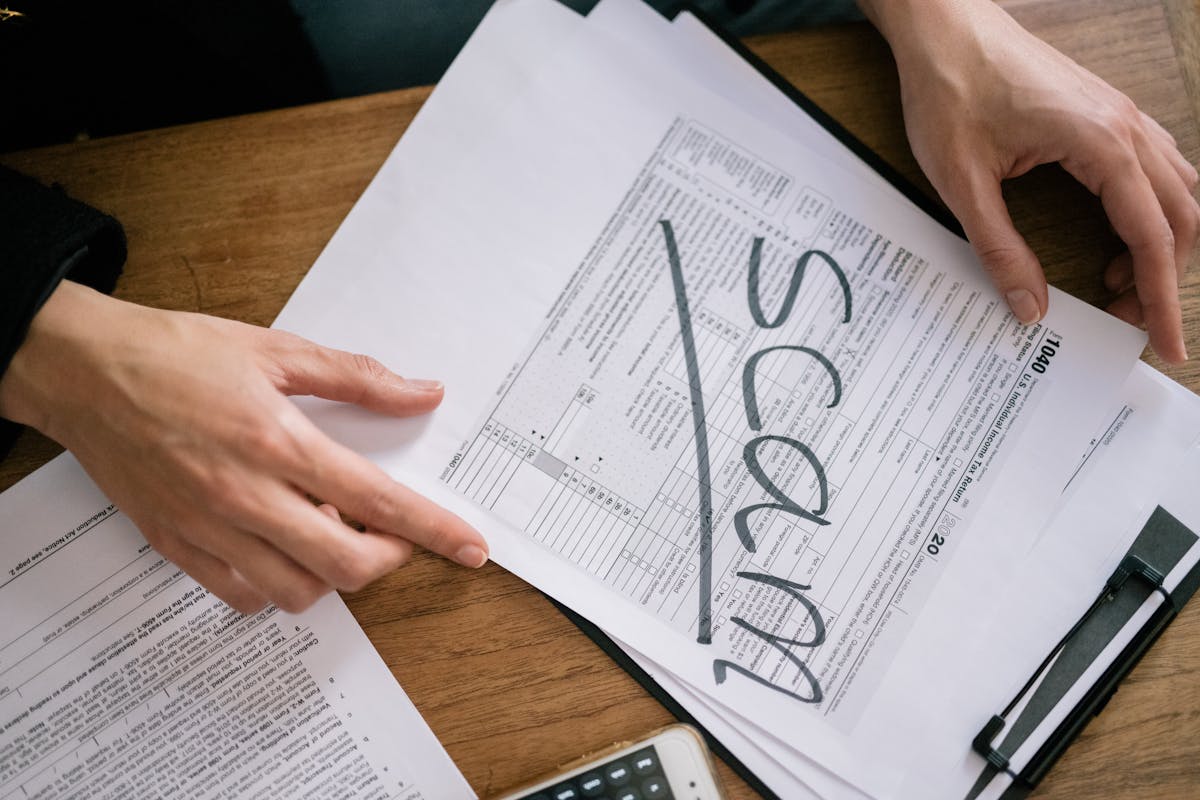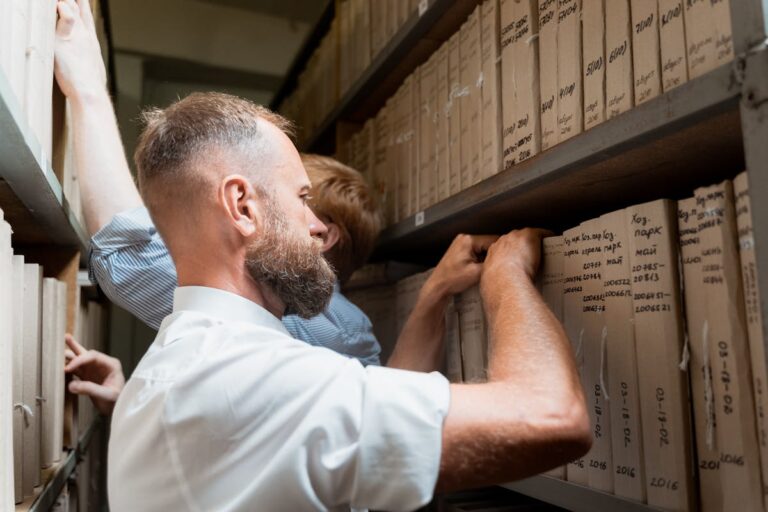Texas Forgery Charges? What You Need to Know

Forgery is a serious crime in Texas, encompassing actions such as the creation, alteration, or use of fraudulent documents with intent to deceive. Intricate legal processes surround these charges, and penalties can be severe, with implications extending beyond mere fines or restitution to potentially impact future employment and personal relationships. Understanding these legalities, the potential defenses, and the role of a defense attorney becomes critical when faced with such allegations. Let’s explore what you need to know about these charges and their potential impact.
Understanding Texas Forgery Laws
Although it may seem complex, understanding Texas forgery laws is vital for anyone accused of such a crime. These laws are detailed, yet understanding the elements of forgery and intent requirements can provide a clearer picture of what constitutes forgery under Texas law.
The elements of forgery as stipulated by the law include the creation, use, or alteration of a written document with the intent to defraud or harm another. The document in question could be anything from a check or contract to a will or deed. It also extends to the use of counterfeit money.
The intent requirements in Texas forgery laws are significant. The prosecution must prove beyond reasonable doubt that the defendant had the specific intent to defraud or harm. This means that mere possession of forged documents or instruments is not enough to constitute a forgery charge unless it can be established that there was intent to use these items deceitfully.
In essence, understanding these aspects of Texas forgery laws can be the difference between a conviction and acquittal. It is, consequently, vital to comprehend these laws fully, especially when faced with such accusations or charges.
Types of Forgery in Texas
While Texas forgery laws are thorough, they encompass a variety of specific types of forgery crimes, each with its own unique characteristics and legal implications. Signature forgery, a common occurrence, involves the unauthorized signing of another person’s name with the intention to defraud. Similarly, document forgery includes the alteration or fabrication of documents such as contracts, deeds, or certificates.
Identity theft is another type of forgery, where personal information is stolen and used for fraudulent activities. Check fraud, often related to identity theft, involves the manipulation of checks to illegitimately obtain funds. Art forgery, though less prevalent, involves the reproduction of valuable artworks with the intent to pass them off as originals.
Electronic forgery, a growing concern in the digital age, includes the unauthorized alteration of electronic data or use of electronic devices to commit fraud. Counterfeit currency, an age-old forgery practice, involves the production and distribution of fake money. Finally, notary fraud, a specific type of document forgery, involves the illegal use of a notary’s seal and signature to authenticate forged documents. Understanding these types of forgery can help in identifying and preventing such crimes.
The Process of a Forgery Case
Every forgery case in Texas follows a precise, carefully outlined legal process designed to guarantee fairness and justice. The process begins with an investigation, where law enforcement officers gather forgery evidence. This may include forged documents, counterfeit items, and falsified electronic records.
The investigation often involves interviews with potential witnesses. These witness testimonies can provide essential information about the alleged forgery. For instance, they may shed light on the circumstances surrounding the creation of the forged item, or the suspect’s intent.
After the investigation, the prosecution will decide whether there is sufficient evidence to proceed with charges. If they determine there is, they will formally charge the suspect with forgery, marking the beginning of the legal proceedings.
The accused will then appear before a court for an arraignment, where they will enter a plea. The case may proceed to trial, where both the prosecution and defense will present their cases. Here, the forgery evidence and witness testimonies collected during the investigation will play a significant role. Finally, the judge or jury will consider all the evidence and render a verdict. The exact process can vary, but this is a general overview of how a forgery case unfolds in Texas.
Potential Penalties for Forgery
Having outlined the process of a forgery case, it is equally important to understand the potential consequences that follow a conviction for this crime in Texas. If found guilty, individuals may face significant legal consequences, which can include potential fines, a mark on their criminal record, restitution requirements, and even civil penalties.
Potential fines can be substantial, generally ranging from $500 to $10,000, depending on the severity of the offense and any mitigating factors. The impact of a criminal record, however, can extend beyond monetary penalties. It can affect future employment opportunities, housing applications, and even personal relationships.
Restitution requirements may also be imposed, requiring the offender to reimburse the victim for any financial losses incurred as a result of the forgery. This can be in addition to the potential fines imposed by the court.
Civil penalties may also be applied, separate from criminal penalties. These can include lawsuits filed by the victim or other affected parties, leading to further potential financial loss.
Understanding these ramifications underscores the seriousness of forgery charges in Texas and highlights the importance of obtaining knowledgeable legal counsel when facing such charges.
Defending Against Forgery Charges
Facing forgery charges in Texas can be intimidating, and the potential consequences, severe. However, suitable forgery defenses can be mounted, aided by well-planned legal strategies. An important part of these strategies is thorough evidence evaluation, which may reveal flaws in the prosecution’s case and open avenues for defense.
Witness testimonies, for instance, can either corroborate or challenge the prosecution’s narrative. The credibility of these testimonies can greatly influence case outcomes. Additionally, during jury selection, the emotional impact of the charges is an essential factor to take into account. A jury swayed by emotion can be less likely to impartially evaluate the evidence.
Plea negotiations also play a vital role in determining the course of the case. A well-negotiated plea deal could lead to reduced charges or lesser penalties. Legal precedents, too, are a fundamental part of the defense strategy. Past rulings can guide the defense in shaping their arguments.
Lastly, expert witnesses can provide specialized knowledge relevant to the case and help in strengthening the defense. With a strong defense, it is possible to effectively challenge forgery charges in Texas, leading to the best possible outcome.
Role of a Defense Attorney
In the context of Texas forgery charges, the role of a defense attorney is paramount. They are central to strategizing your legal defense, effectively utilizing their expertise to challenge the prosecution’s case. Additionally, they serve as guides through the intricate trial process, ensuring a thorough understanding and appropriate response to each phase.

Understanding Defense Attorney’s Role
The defense attorney plays a pivotal role in a Texas forgery case, serving as the essential link between the accused and the justice system. They are not only a representative but also a counselor and advocate for the defendant. The attorney-client relationship is one of trust, confidentiality, and mutual respect, which is crucial for a successful defense.
A defense attorney’s role encompasses various responsibilities, including thorough understanding of Texas law, evaluating the client’s situation, and developing viable defense strategies. They are tasked with analyzing evidence, interviewing witnesses, and arranging plea bargains if necessary. Their expertise in legal issues surrounding forgery cases is critical in guaranteeing the defendant’s rights are protected.
Moreover, the attorney guarantees the client comprehends the severity of the charges, potential consequences, and the progress of the case. They provide advice based on their extensive knowledge and experience, aiding in making informed decisions.
In essence, the role of a defense attorney in a Texas forgery case is intricate and multifaceted. Their primary goal is to provide the best possible defense for their clients, adhering to the principles of justice and fairness. Understanding their role is crucial for anyone facing such charges.
Strategizing Your Legal Defense
Crafting a robust legal defense in a Texas forgery case is an art form that a skilled defense attorney must master. This process involves two essential aspects: evidence gathering and witness preparation.
Evidence gathering is a meticulous process that involves the careful and thorough collection of all forms of information that can help shape a compelling defense. This may include documents, emails, phone records, and other tangible proofs that can contradict the prosecution’s claims. By identifying and analyzing this evidence, a competent attorney can build a solid defense strategy that might potentially lead to dismissal of charges or reduced sentences.
Witness preparation, on the other hand, is an equally essential aspect of defense strategy. This involves coaching witnesses to give clear, consistent, and persuasive testimonies. The defense attorney guarantees that the witness understands the questions they might face, and helps them respond in a manner that supports the defense’s narrative.
It is important to note, however, that while these strategies are essential, each case is unique and requires a tailored approach. An experienced defense attorney will consider every angle of your situation and adopt the most effective tactics to protect your rights and freedom.
Navigating Through Trial Process
Steering through the complexities of a trial process, the role of a defense attorney becomes increasingly crucial. They are the guidepost in traversing the labyrinth of trial procedures, guaranteeing that the rights of the accused are protected at every stage.
The defense attorney commences with the essential task of jury selection. This is a critical phase where the attorney seeks to guarantee a fair and impartial jury. They meticulously evaluate potential jurors, examining their biases and preconceived notions that could impact the trial’s outcome.
The attorney then presents a strategic defense, challenging the prosecution’s evidence, and introducing doubt in the minds of the jury. They scrutinize the validity of the forgery charges and question the methods used to collect evidence.
Successfully traversing the trial process requires a deep understanding of the law, sharp analytical skills, and a persuasive delivery. A defense attorney’s role is not just about representing the accused but also about guaranteeing the justice system operates fairly and impartially.
In essence, a defense attorney is a critical ally in the trial process, whose role extends beyond defense to guaranteeing the integrity of the justice system.
Impact of a Forgery Conviction
A conviction for forgery in Texas carries significant consequences, dramatically impacting both the personal and professional life of an individual. Primarily, the social stigma that ensues may lead to severed personal relationships and strained community ties. This can cause immense psychological effects, including stress and anxiety, thus affecting one’s mental health.
Furthermore, a forgery conviction can have serious employment consequences. Many employers are reluctant to hire individuals with a criminal record, potentially leading to prolonged unemployment and financial repercussions. This, coupled with potential fines and restitution payments, can exacerbate an individual’s financial situation.
In the long term, these implications can drastically affect one’s lifestyle and future prospects. The social isolation, loss of job opportunities, and financial instability can persist for years after the conviction, resulting in a cycle of hardships that can be challenging to break.
It is consequently essential to comprehend the gravity of these implications and seek legal counsel if faced with such charges. Understanding the potential impact of a forgery conviction can serve as a deterrent and emphasize the importance of adhering to legal and ethical standards.
Frequently Asked Questions
Can I Be Charged With Forgery if I Didnt Know the Document Was Fake?
In Texas, forgery charges typically require intent. If you were unaware of the document’s lack of authenticity, this could potentially be a defense. However, these cases are complex, requiring professional legal advice.
Is Handwriting Analysis Used in Forgery Cases in Texas?
Yes, in Texas, handwriting analysis is often utilized in forgery cases. Handwriting experts are brought in to provide forensic evidence, examining the intricacies of the script to determine its authenticity and identify potential forgery.
How Can a Previous Conviction Influence a Forgery Case in Texas?
In Texas, previous convictions can greatly impact a forgery case. They may lead to harsher legal consequences, including increased fines or extended jail time, due to the state’s stringent repeat offender laws.
What Are the Ways to Prove Innocence in a Forgery Case in Texas?
Proving innocence in a Texas forgery case requires strategic evidence presentation, utilizing defense strategies such as challenging the authenticity of alleged forged documents, questioning intent, and providing a reasonable doubt to the jury.
Can Forgery Charges Be Dropped or Reduced in Texas?
Yes, forgery charges in Texas can potentially be dropped or reduced through effective defense strategies and plea negotiations, depending on the unique circumstances of the case and the strength of the evidence presented.



